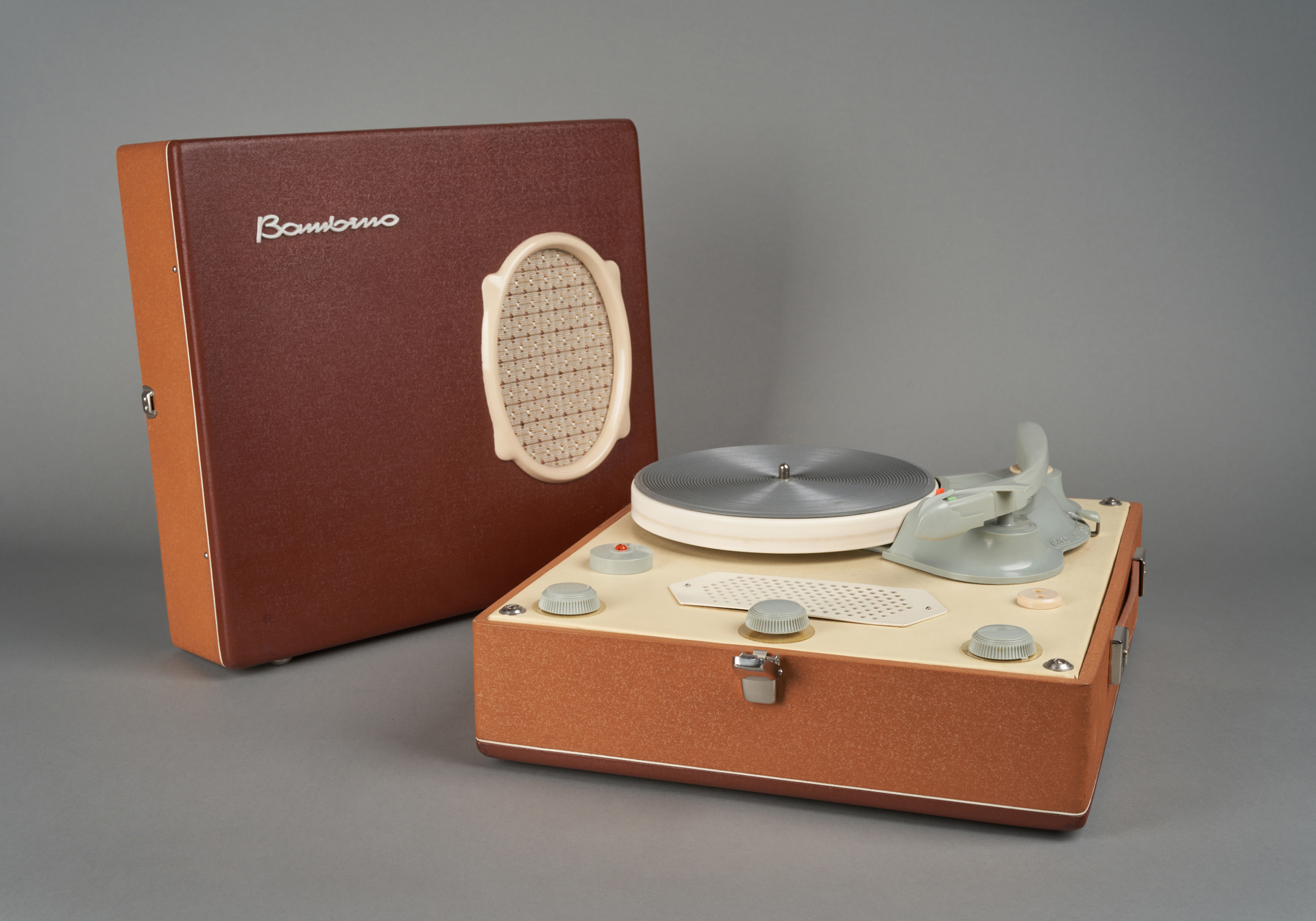
Bambino WG-252 suitcase gramophone
Łódzkie Zakłady Radiowe Fonica, / 1965Creator
Łódzkie Zakłady Radiowe Fonica
Time and place of creation
Time:
1965
Place:
Poland
In 1954, Zakłady Wytwórcze Aparatów Telefonicznych w Łodzi (T4), which were transformed into Łódzkie Zakłady Radiowe (ŁZR) in 1958 and then (in 1960) into Łódzkie Zakłady Radiowe Fonica, began the production of gramophones. The devices, at the time still based on vacuum tubes, were manufactured in three variants: GE – without a housing, WGE – in a suitcase housing, and SGE – in a box housing. In 1956, the ŁZR launched the Karolinka GE-56 gramophone, which was manufactured until 1961, and in 1963 – the model WG 252, known as the Bambino. The device was enclosed in a cuboid box containing the adapter drive and the turntable. The built-in speaker was placed behind an oval cover, placed in a lid, which one took off the device and put next to the gramophone as a speaker. This practical solution is the hallmark of many of Fonica’s gramophones. The leather-bound gramophone case was made at Spółdzielnia Pracy Branży Skórzanej im. M. Buczka in Piotrków Trybunalski.
Over time, the Bambino became hyped among Polish youth. A statue of it, made by sculptor Jacek Adamas, was erected in the Czesław Niemen Amphitheatre in Olsztyn in 2010. Niemen, one of the most important and popular Polish musicians of the 1960s, was the first musician in Poland to receive a Golden Record in 1968 for selling over 150,000 copies of his Dziwny jest ten świat album. The title song had been distinguished a year earlier with a special award, as well as during the 5th National Festival of Polish Song in Opole. Promotion of music in the form of festivals, song reviews, or top hits lists broadcast on the radio, is a component of the phonographic industry of producing and selling records. Their popularity as an entertainment and leisure medium has a direct impact on the sales of devices used for playing back music. Growing sales of records and promotion of music contribute to the development of new devices.
The Bambino gramophone was jointly designed by Bogdan Ciesielski, Bernard Kowalski, and Jerzy Radwański. The device was one of four models of the gramophone produced under the same name, the others being: WG 262 Bambino 2 and 2b (1969), WG 263 Bambino 3 (1970), and WG 264 Bambino 4 (1972). In the early 1970s, Fonica began manufacturing gramophones using transistors and printed circuit boards, two examples being the Tranzyston (1971) and Bartek (1972).
Authors: Piotr Turowski, Filip Wróblewski
Bambino WG-252 suitcase gramophone
Łódzkie Zakłady Radiowe Fonica, / 1965Creator
Łódzkie Zakłady Radiowe Fonica
Time and place of creation
Time:
1965
Place:
Poland











